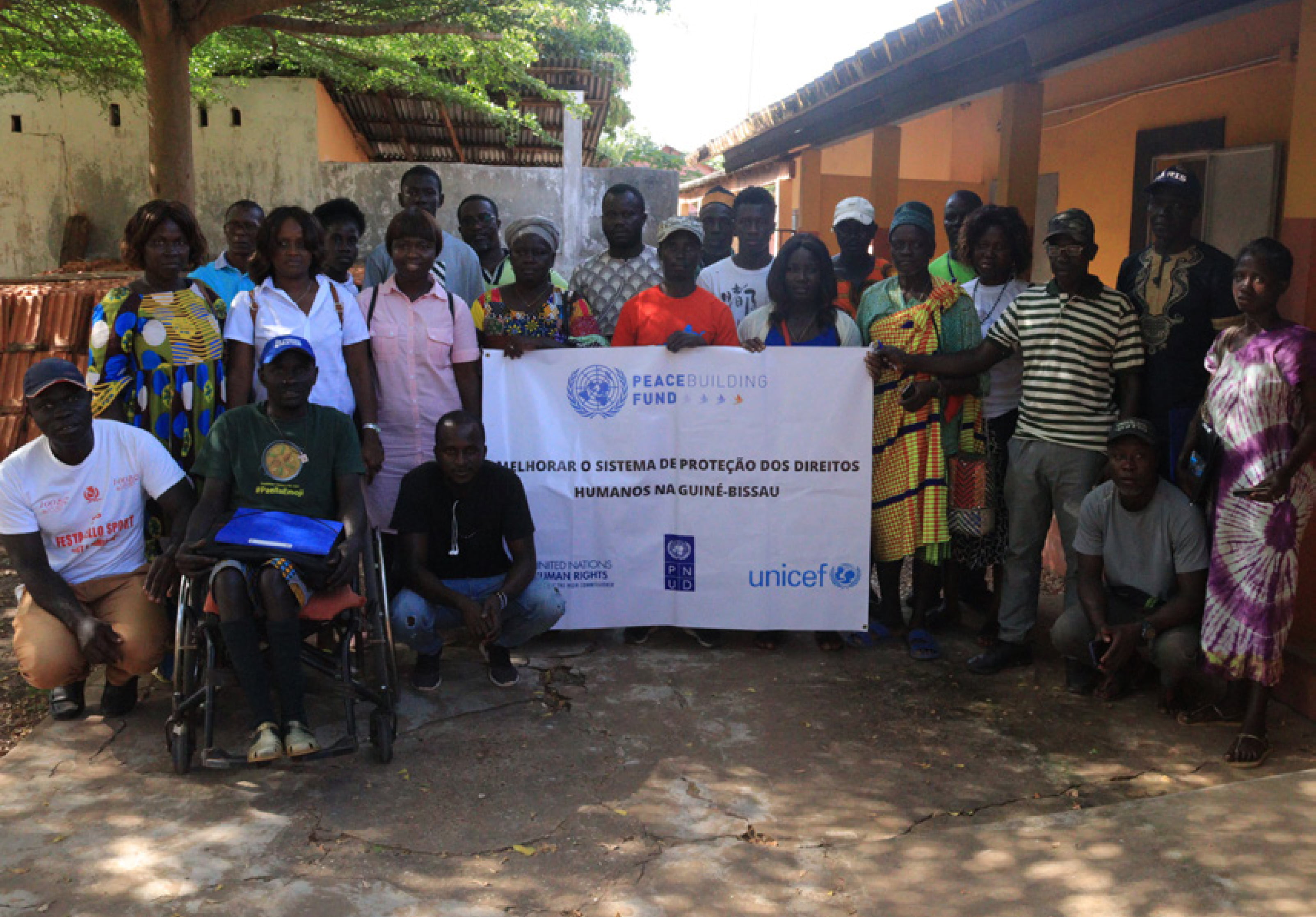Guinea-Bissau

Countries & Territories
In Guinea-Bissau, an attempted coup d’état set back the progress previously made in human rights protection, and the dissolution of the National Assembly (Guinea-Bissau’s legislative body) delayed the reforms. In this context, UNDP worked with national partners to improve access to justice for all in the country, especially women and girls.
Gender equality
The lack of qualified legal professionals is one of the impediments to accessing justice in Guinea-Bissau. In 2022, UNDP continued working with Centres of Access to Justice (CAJ) to address this issue and to improve access to justice for women, children, youth and other groups at risk of marginalization, including in remote areas. In 2022, 8,863 people (47 percent women) across the country received support at the CAJs, 43 percent more than in 2021. Over 90 percent of the cases presented before the CAJs were resolved by mediation, reconciliation, or other administrative processes.

Dissemination of the National Human Rights Action Plan
Leave No One Behind
UNDP supported four trainings for 105 magistrates, justice officials and criminal investigators (including 31 women) delivered through the Judiciary Training Centre (CENFOJ). In cooperation with the Bar Association, UNDP supported training for 137 lawyers, including 35 women. The next step will be creating a team of women lawyers to provide pro-bono judicial assistance to vulnerable people, particularly at the regional level throughout the country, where the lack of lawyers is critical.
Partnerships
UNDP worked with civil society organizations (CSOs) to facilitate collaboration between the communities and state institutions to combat drug trafficking and transnational organized crime, human trafficking and corruption. The inputs from CSOs were considered in the design process of the National Strategic Plan to prevent and protect victims of human trafficking and the Government elaborated on these inputs with UNDP support.
The National Strategy on Community Policing was approved and the Proximity Police Model was adopted to ensure inclusive community-oriented policing and increase people’s trust in the police. To reinforce the presence of security forces in the country and to enable better service delivery, UNDP supported the rehabilitation of the Bafatá detention facility, the construction of the third model police station in Gabu and the refurbishment of two border control posts in the northern part of the country (Dungal/Oio region and Cambaju/Bafata region).
Human rights
UNDP strengthened the human rights capacity of the Government by providing technical and financial assistance to elaborate the first National Human Rights Strategy. UNDP-facilitated consultations between civil society and national authorities contributed to the inclusivity and the national ownership of the process. The Council of Ministers approved the Strategy on 6 October 2022, and it is now in the implementation phase, also supported by UNDP in close coordination with civil society and the National Commission on Human Rights.
Going forward, UNDP will focus on improving access to justice for women survivors or those at risk of sexual and gender-based violence, including through women’s empowerment and awareness raising. A gender audit of the judiciary is planned to identify gaps in gender equality and design strategic lines for action. UNDP will also work to establish an early warning system to prevent human rights violations and strengthen the capacity of human rights defenders.

results
- Approximately 2,350 people (38 percent youth and 27percent women and girls) benefited from UNDP-supported information and awareness-raising campaigns, training and workshops on human rights, justice and the rule of law.
- UNDP support to the Centres of Access to Justice (CAJ) helped improve access to justice for women, children, youth and other groups at risk of marginalization, including in remote areas. In 2022, 8,863 people (47 percent women) across the country received support at the CAJs, 43 percent more than in 2021. Over 90 percent of the cases presented before the CAJs were resolved.
- Two border posts and one police station were constructed, and a detention centre was rehabilitated, improving the service delivery of the law enforcement agencies and contributing to a people-centred approach.
The first National Human Rights Action Plan and the National Anti-Corruption Strategy were developed with UNDP’s technical and financial support. The Government approved both documents, which are being implemented with further support from UNDP.
CAJ Report, 2022. Ministry of Justice and Human Rights.
Estratégia Nacional para os Direitos Humanos e Cidadania, Guiné-Bissau 2022-2026, March 2022.
Estratégia Nacional de Combate à Corrupção da República da Guiné-Bissau 2021 - 2030 (ENCàC G-B), September 2021.

